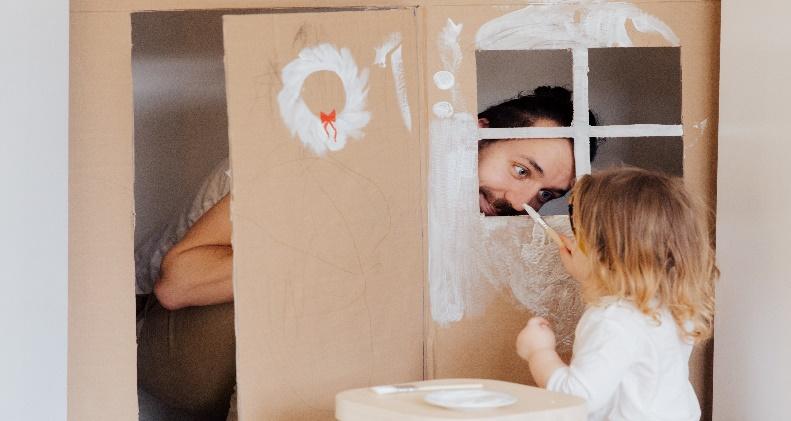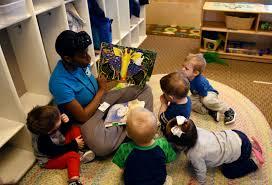3.3: Who?
- Page ID
- 86688
\( \newcommand{\vecs}[1]{\overset { \scriptstyle \rightharpoonup} {\mathbf{#1}} } \)
\( \newcommand{\vecd}[1]{\overset{-\!-\!\rightharpoonup}{\vphantom{a}\smash {#1}}} \)
\( \newcommand{\dsum}{\displaystyle\sum\limits} \)
\( \newcommand{\dint}{\displaystyle\int\limits} \)
\( \newcommand{\dlim}{\displaystyle\lim\limits} \)
\( \newcommand{\id}{\mathrm{id}}\) \( \newcommand{\Span}{\mathrm{span}}\)
( \newcommand{\kernel}{\mathrm{null}\,}\) \( \newcommand{\range}{\mathrm{range}\,}\)
\( \newcommand{\RealPart}{\mathrm{Re}}\) \( \newcommand{\ImaginaryPart}{\mathrm{Im}}\)
\( \newcommand{\Argument}{\mathrm{Arg}}\) \( \newcommand{\norm}[1]{\| #1 \|}\)
\( \newcommand{\inner}[2]{\langle #1, #2 \rangle}\)
\( \newcommand{\Span}{\mathrm{span}}\)
\( \newcommand{\id}{\mathrm{id}}\)
\( \newcommand{\Span}{\mathrm{span}}\)
\( \newcommand{\kernel}{\mathrm{null}\,}\)
\( \newcommand{\range}{\mathrm{range}\,}\)
\( \newcommand{\RealPart}{\mathrm{Re}}\)
\( \newcommand{\ImaginaryPart}{\mathrm{Im}}\)
\( \newcommand{\Argument}{\mathrm{Arg}}\)
\( \newcommand{\norm}[1]{\| #1 \|}\)
\( \newcommand{\inner}[2]{\langle #1, #2 \rangle}\)
\( \newcommand{\Span}{\mathrm{span}}\) \( \newcommand{\AA}{\unicode[.8,0]{x212B}}\)
\( \newcommand{\vectorA}[1]{\vec{#1}} % arrow\)
\( \newcommand{\vectorAt}[1]{\vec{\text{#1}}} % arrow\)
\( \newcommand{\vectorB}[1]{\overset { \scriptstyle \rightharpoonup} {\mathbf{#1}} } \)
\( \newcommand{\vectorC}[1]{\textbf{#1}} \)
\( \newcommand{\vectorD}[1]{\overrightarrow{#1}} \)
\( \newcommand{\vectorDt}[1]{\overrightarrow{\text{#1}}} \)
\( \newcommand{\vectE}[1]{\overset{-\!-\!\rightharpoonup}{\vphantom{a}\smash{\mathbf {#1}}}} \)
\( \newcommand{\vecs}[1]{\overset { \scriptstyle \rightharpoonup} {\mathbf{#1}} } \)
\(\newcommand{\longvect}{\overrightarrow}\)
\( \newcommand{\vecd}[1]{\overset{-\!-\!\rightharpoonup}{\vphantom{a}\smash {#1}}} \)
\(\newcommand{\avec}{\mathbf a}\) \(\newcommand{\bvec}{\mathbf b}\) \(\newcommand{\cvec}{\mathbf c}\) \(\newcommand{\dvec}{\mathbf d}\) \(\newcommand{\dtil}{\widetilde{\mathbf d}}\) \(\newcommand{\evec}{\mathbf e}\) \(\newcommand{\fvec}{\mathbf f}\) \(\newcommand{\nvec}{\mathbf n}\) \(\newcommand{\pvec}{\mathbf p}\) \(\newcommand{\qvec}{\mathbf q}\) \(\newcommand{\svec}{\mathbf s}\) \(\newcommand{\tvec}{\mathbf t}\) \(\newcommand{\uvec}{\mathbf u}\) \(\newcommand{\vvec}{\mathbf v}\) \(\newcommand{\wvec}{\mathbf w}\) \(\newcommand{\xvec}{\mathbf x}\) \(\newcommand{\yvec}{\mathbf y}\) \(\newcommand{\zvec}{\mathbf z}\) \(\newcommand{\rvec}{\mathbf r}\) \(\newcommand{\mvec}{\mathbf m}\) \(\newcommand{\zerovec}{\mathbf 0}\) \(\newcommand{\onevec}{\mathbf 1}\) \(\newcommand{\real}{\mathbb R}\) \(\newcommand{\twovec}[2]{\left[\begin{array}{r}#1 \\ #2 \end{array}\right]}\) \(\newcommand{\ctwovec}[2]{\left[\begin{array}{c}#1 \\ #2 \end{array}\right]}\) \(\newcommand{\threevec}[3]{\left[\begin{array}{r}#1 \\ #2 \\ #3 \end{array}\right]}\) \(\newcommand{\cthreevec}[3]{\left[\begin{array}{c}#1 \\ #2 \\ #3 \end{array}\right]}\) \(\newcommand{\fourvec}[4]{\left[\begin{array}{r}#1 \\ #2 \\ #3 \\ #4 \end{array}\right]}\) \(\newcommand{\cfourvec}[4]{\left[\begin{array}{c}#1 \\ #2 \\ #3 \\ #4 \end{array}\right]}\) \(\newcommand{\fivevec}[5]{\left[\begin{array}{r}#1 \\ #2 \\ #3 \\ #4 \\ #5 \\ \end{array}\right]}\) \(\newcommand{\cfivevec}[5]{\left[\begin{array}{c}#1 \\ #2 \\ #3 \\ #4 \\ #5 \\ \end{array}\right]}\) \(\newcommand{\mattwo}[4]{\left[\begin{array}{rr}#1 \amp #2 \\ #3 \amp #4 \\ \end{array}\right]}\) \(\newcommand{\laspan}[1]{\text{Span}\{#1\}}\) \(\newcommand{\bcal}{\cal B}\) \(\newcommand{\ccal}{\cal C}\) \(\newcommand{\scal}{\cal S}\) \(\newcommand{\wcal}{\cal W}\) \(\newcommand{\ecal}{\cal E}\) \(\newcommand{\coords}[2]{\left\{#1\right\}_{#2}}\) \(\newcommand{\gray}[1]{\color{gray}{#1}}\) \(\newcommand{\lgray}[1]{\color{lightgray}{#1}}\) \(\newcommand{\rank}{\operatorname{rank}}\) \(\newcommand{\row}{\text{Row}}\) \(\newcommand{\col}{\text{Col}}\) \(\renewcommand{\row}{\text{Row}}\) \(\newcommand{\nul}{\text{Nul}}\) \(\newcommand{\var}{\text{Var}}\) \(\newcommand{\corr}{\text{corr}}\) \(\newcommand{\len}[1]{\left|#1\right|}\) \(\newcommand{\bbar}{\overline{\bvec}}\) \(\newcommand{\bhat}{\widehat{\bvec}}\) \(\newcommand{\bperp}{\bvec^\perp}\) \(\newcommand{\xhat}{\widehat{\xvec}}\) \(\newcommand{\vhat}{\widehat{\vvec}}\) \(\newcommand{\uhat}{\widehat{\uvec}}\) \(\newcommand{\what}{\widehat{\wvec}}\) \(\newcommand{\Sighat}{\widehat{\Sigma}}\) \(\newcommand{\lt}{<}\) \(\newcommand{\gt}{>}\) \(\newcommand{\amp}{&}\) \(\definecolor{fillinmathshade}{gray}{0.9}\)Who are the children?
The children you will work with are as diverse as the people that work with them. Many programs are divided by age groups, so that is one way to define “who”:
- Infants – from birth to about 12 months (1 year) of age
- Toddlers – from about 12 months (1 year) to 30 months (2 ½ years) of age
- Preschool – from about 2 ½ to about 5 years of age
- Pre - Kindergarten or T-Kindergarten – usually 4-5 year of age
- Kindergarten – 5 years of age
- Early Elementary (Grades 1-3) – 6-8 years of age
As you will learn in Chapter 5 (Developmental Ages and Stages), each of these ages presents very different developmental stages and teachers work with each group accordingly. Some programs focus on just one of these age groups while others may incorporate several or all of them.

The children you work with can be defined in many others way, some of which you will visit in this class, as well as other early childhood courses. Each child is unique and will come to you with their own experiences, strengths, and temperaments. Some you will connect with right away, and others you will need to stretch yourself to understand. The one thing that EVERY child you work with will have in common is the need to be respected, valued and loved. They need a safe place to trust and make connections, to feel comfortable and included. One of your primary jobs as a teacher is to connect with each child and value them as individuals.
“My team teacher and I start each new school year generally planning for the stages of the children we will have in my classroom. Then we spend the first few weeks getting to know each individual child, focusing on making connections, and then adjust our plans accordingly.
Each new year it takes me quite a bit of time to feel comfortable with the new children. They all start out as a blur and then ever so slowly they come into focus with each bringing their own pieces to the whole picture.
At the start of the school year, I make a list of the children and take a photo. Each night when I go home, I try to make a note about at least 4 different children; personality, interests, and 2 weeks later I know so much!”
Who are their families?
Often, when we choose to work with children, we do not realize that by extension that means working with families. The younger the children, the more they are connected to the people in their home, and best practices for young children include partnerships between their two most important worlds, home and school.

In Chapter 8 (Partnering with Families), we visit many aspects of working with families, so here we will simply say, just as your family is important to you and taught you many things, so too it will be for the children and families you work with. We need to conceptualize that families are a child’s first teacher, and will be a strong and valuable teaching partner while their child is with us. They are entrusting us with their most prized possession and expecting that we will cherish that child as they do. A privilege indeed!
Who are the teachers?
As can be imagined, the people that are called to teaching are diverse indeed. Each brings their own set of strengths, interests, beliefs, and experiences. There is no “one right way” to teach; no magical guide you can refer to that will tell you exactly what to do in every situation. Every teacher will approach circumstances differently and this is both the joy and the trial of teaching. Your “why” will determine much of what you do. This will blend with your knowledge, experiences, and dispositional traits to guide you on your teaching journey.

With that being said, there are some skills and traits that are helpful for high quality teachers to possess. Some of them are knowledge based and you will learn them as you complete your courses and field experiences. Time and time again we hear new teachers reflect on the importance of realizing that the early childhood classes they are taking are “job training” courses that should be valued with time spent understanding and internalizing the content rather than simply trying to pass with minimal effort to complete them.
“In looking back, I wish someone had helped me understand that these ECE classes would be important information for my career. I hate to admit it, but so much of high school and college felt like “busy work” that I did not put in the effort I should have, and now I regret the fact that I did not learn it fully when I should have. I am going back a lot more than other teachers to relearn what I should have in classes.“
This will be particularly true with experiences in the field. Most likely, at some point in your course of study, you will be expected to visit programs to observe and participate. While this can be difficult to fit into your schedule, as well as frightening to undertake, these experiences are crucial to developing your skills as a teacher. You can read and study all of the content you can, but until you actually put it into practice with real children, it cannot come to life for you. We encourage you to try as many different experiences with children as you can. Certainly, some class assignments will lend themselves to this endeavor, as will volunteer opportunities in the community. Ask your instructors or others in the field about these types of experiences. You never know what adventures await until you ask.
While your education, knowledge, and experiences will prove vital to your success as a teacher, there is another realm of traits to be considering.
Think back to a teacher that made a positive impression in your life. What traits did that teacher possess that make them stand out to you?
Perhaps you listed some of their education or experiences, but more than likely you included some “dispositional” traits as well. Lillian Katz was one of the first to define some of the dispositions that high-quality teachers seem to possess. While some of these can be studied and developed, most occur naturally in the noted quality teachers.
Here a list of dispositions and traits frequently noted as occurring in high quality teachers:
- Reflective
- Compassionate
- Authentic
- Supportive
- Respectful
- Encouraging
- Safe
- Trustworthy
- Positive
- Shares control
- Focuses on strengths
- High, realistic expectations
- Kind
- Patient
- Dedicated
- Knows learners
- Engages learners
- Ethical
- Growth Mindset
- Approachable
- Present [28]
Look at the list above. What dispositional traits do you currently possess? Are there some you may not yet have, but can develop? How would you plan to develop them?
One key factor successful teachers share is the ability to continually look inward through reflection. In the yellow-green colored boxes, we have asked you to “Pause to Reflect.” Why?
The Reflective Process
Learning occurs when we take risks, when we make mistakes, when we inquire, and when we experience new things. All humans are unique and process their environment from their own unique perspective. Our perspectives are informed by the interaction of nature (genetics) and nurture (environment) and both have an impact on how we process relationships with our families, our friends, our colleagues, etc. These interactions provide us with a foundation that shapes the way we view current and future relationships. As we engage in relationships with children and their families, we use reflective practices to learn more about ourselves, including our dispositions.
As we learn more about ourselves, we have the opportunity to develop broader ways to engage in relationships with the children and families we serve. The experiences we afford children and families cannot happen without the layers of a healthy relationship. Healthy positive relationships that guide and support children are the foundation of quality teaching. Authenticity and compassion are ways of being that create supportive environments for children to flourish. The strength of a teacher’s knowledge about themselves in relation to others creates opportunities for the children and families they serve to have respectful and reciprocal relationships to ensure that the child is always considered when making the multitude of decisions that are made throughout the day.
You may ask why it is so important for me to know more about myself in relation to others. As the teacher, you are the primary force in the classroom. As the quote below indicates, you, as the teacher, hold the key to creating an environment where children and their families either can flourish or diminish. Being able to value every human comes from our deep knowledge about ourselves. This is done through reflective practice.
“I have come to a frightening conclusion that I am the decisive element in the classroom. It’s my personal approach that creates the climate. It’s my daily mood that makes the weather. As a teacher, I possess a tremendous power to make a child’s life miserable or joyous. I can be a tool of torture or an instrument of inspiration. I can humiliate or humor, hurt or heal. In all situations, it is my response that decides whether a crisis will be escalated or de-escalated and a child humanized or dehumanized.” - Haim Ginott
How does this quote resonate with you? Why?
We reflect in many ways, both informally and formally, in private and with others, during the experience and after, knowingly and unknowingly. All are valuable and we encourage you to try many different ways until you internalize the process that makes the most sense for you and moves you toward being an “instrument of inspiration”.
Go back to the list of traits above. As you look through it again, do you notice that almost all include relationships in some way? Relationships are at the core of quality teaching.
Relationships Build Connections in the Brain
How can something as intangible as a relationship affect learning and the brain? Relationships are connection, communication, consideration. The brain is very much an active participant in recording, building, and shaping relationships. Research in human brain mapping has recognized a Neuro-Relational approach that tells us:
“Experience, not simple maturation, changes the brain (neuro).” Moreover, “all learning happens in the context of relationships (relational).” [29] When a child shows distress, a caregiver who has a proven relationship with that infant (or child) through appropriate response and respect can help the child return to a sense of calm. This is shown by tracking brain patterns of distressed children who are being monitored with brain imaging machines. The child’s brain pattern also has an effect on the caregiver’s brain pattern, both regulating each other. Both the child and the caregiver’s stress response system synchronize and return to a frequency that is conducive to learning. [30]
The knowledge that healthy, positive, relationships are primary in creating an environment conducive to learning, helps us to structure the emotional environment with supportive and loving exchanges where children and families feel supported and appreciated. Science has shown us the link between body and mind. It has measured emotions and how different emotions affect brain waves and brain development.
We have learned that children, who experience stress, have brains that are wired to react rather than respond. Dr. Bruce Perry, a renowned psychiatrist, who has dedicated his career to the treatment of and research into childhood mental health, has spoken out about how early traumatic experiences shape the brain and what we can do to counteract the detrimental effects this has for life long mental health. The following are two recent quotes from his presentation at a conference:
“You can’t access the brain without relationships.”
“Lack of belonging activates the stress response. The cortex shuts down and learning can’t happen. Connections are the superhighway to the cortex.”
That, concisely, helps us to see the value of building relationships that help children and families have that sense of belonging that they deserve to thrive in our school environment.
Who are the other professionals supporting children?
Some of you may think you want to work in some way with children and families, but may not be sure that “teaching” is the right fit for you. Many experts will recommend starting as a teacher assistant or teacher, regardless of your later plans. That is because this experience will prove a valuable addition to whatever career you pursue in the field.
Keep in mind that “teaching” may look very different with different age groups. While the forming of relationships will lie at the core of all quality teaching, the interactions, roles, and duties will vary tremendously. We encourage you to spend some time with different age levels to get a feel for your best “fit”.
Whatever age group you are working with, we encourage you to give yourself some time to get comfortable before you decide it is not for you. Teachers go through stages and in the initial stage of survival, it is difficult to discern if it is the age group, the program, or just your limited experience that is feeling overwhelming and uncomfortable.
Below is a table of the stages you can expect to go through over the years on your teaching journey:
| Stage | Common Feelings | Common Needs | Advice from the Field |
|---|---|---|---|
| Survival | Fear, inadequacy, doubt, overwhelmed, exhaustion | Support, practical information and advice, understanding, a mentor or coach, resources |
Hang in there We’ve all been there It gets easier Mistakes are learning opportunities…learn a lot |
| Clarity | Clearer understanding, noticing individual children and needs, a little less fear, moments of adequacy | Continued support, continued resources, a mentor or coach, encouragement to try new things, |
You got this We believe in you Keep on trying Focus on what you like to do Enjoy the children |
| Growth | Knowledgeable, comfortable, take new risks, reflective | Support, encouragement to do things your way, reflection, team teaching |
Way to go Keep growing Know your strengths Try new things Step outside your comfort zone |
| Mastery | Accomplished, proud, invigorated, seeking new challenges, | Branching out, mentoring or coaching others, taking on new roles and responsibilities, community connections, professional organizations |
Time to support others Share your strengths Be a role model Consider advocacy Join the profession |
Keep in mind that each time you begin a new endeavor (ie: teaching at a new location, new age group, new role) you will move back to survival and through the stages, although the timing may be shorter. Knowing this allows you to give yourself permission to feel the way you need to feel and seek the support you need throughout your career.
Who will be with me?
One of the wonderful aspects of our field is that you are rarely alone. In addition to the children and families, you will have colleagues who can support your journey. You may find yourself working with any or all of the following:
| Role | Description |
|---|---|
| Director/Manager/ Principal | Usually runs the day to day operations, oversees teaching staff, involved in hiring, provides resources and support, budgeting. |
| Office Staff | Keep records, handle paperwork, phone calls, administrative support. |
| Team Teacher / Assistant/Aide | Additional person you will collaborate with in your classroom. It’s common practice to provide support for each other, offer a variety of role models for children and families, offer different strengths. |
| Specialists | Sometimes a specialist works in the classroom with individual children or the group. Usually providing specialized services in Occupational Therapy (OT) (life skills), Physical Therapy (PT), Speech and Language, or Behavioral intervention they may be part of the teaching team all day or for brief segments throughout the week. |
| Other Staff Members | From time to time, you may work with custodians, food service providers, health specialists, and others performing duties related to the classroom. |
| Volunteers | Family or other community members working in a variety of capacities as part of the teaching team. |
| College Students | From time to time college students may work in the classroom as part of their training. |
In addition to the above list, we encourage you to find a mentor or coach, someone you can turn to with questions or when you need support. In the field of early childhood, many of us “pay it forward”. Someone provided support for us when we were new to the field with the understanding that we would do the same when our time came. Most early childhood teachers are kind, caring professionals who want to see you succeed. Each time you succeed, our field succeeds and the children and families we work with receive the quality experiences they deserve. Ask your instructor or another resource if they know of any formal or informal mentor programs in your area.
Letter from a Fieldwork Student My experience is limited. I want to learn. Please don’t expect perfection whenever I interact, guide behavior, lead a lesson, or do bulletin boards. Please be patient with me. My eyes have not yet been trained to see all the students in the classroom most of the time. Classroom responsibilities will always be there. I’m only with you for a short time. Please take time to explain things to me and do so willingly.
My feelings are real. Please be sensitive to my needs and don’t get annoyed if I ask a lot of questions and am uncertain about what to do sometimes. Treat me as you would like to be treated.
I am a unique individual, like each one of your students. Please treasure my being, holding me accountable for my actions, giving me guidelines to follow, and disciplining me in a professional manner, if need be.
I need your support and encouragement to grow. Pointing out what I am doing correctly and occasional praise can be reassuring and help me feel comfortable to take risks and grow.
Please give me constructive feedback, focused on the things I do, without criticizing me.
Please give me the freedom to make decisions and test them out as long as they don’t jeopardize the well-being and safety of the students. If I fail, I can learn from my mistakes. Then I’ll be better prepared to make decisions life requires of me.
Please invite me to appropriate faculty meetings, seminars, workshops, parent meetings and to join educational organizations, setting a good example for me to follow. I may not be able to attend but I will appreciate your confidence in me as a future fellow professional.
Sincerely,
A New Fieldwork Student [31]
If you want to work with children and families, but are not sure teaching is for you, there are many other career options you are encouraged to explore.
| Area | Careers |
|---|---|
| Child Development Focus |
|
| Elementary Settings |
|
| Adult Education and Training |
|
| Community and Social Services |
|
| Other Related Work Options |
|
*Refers to the levels on the Child Development Permit Matrix
**These positions usually require a bachelor’s degree and additional training


